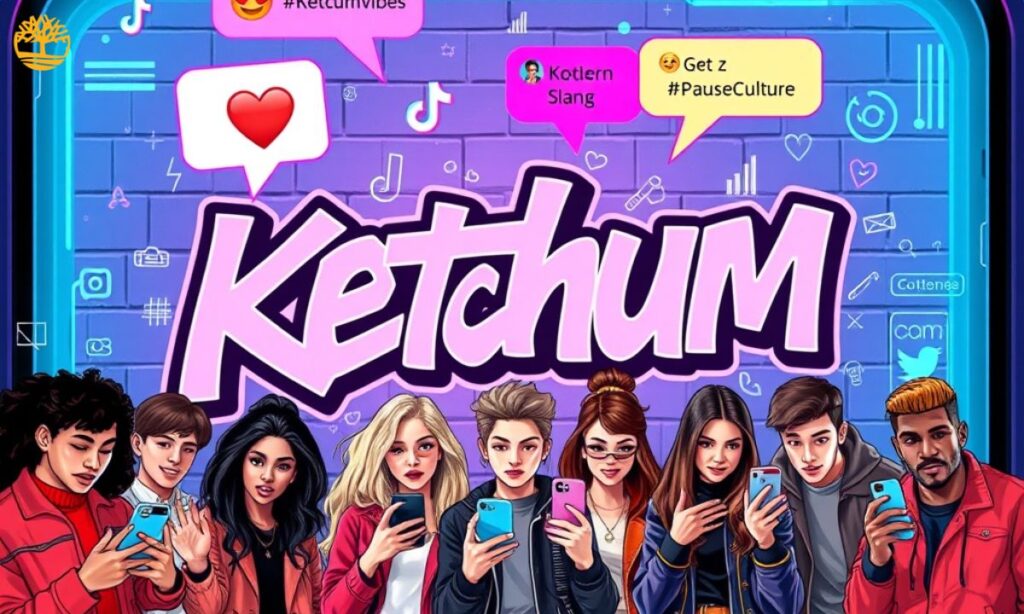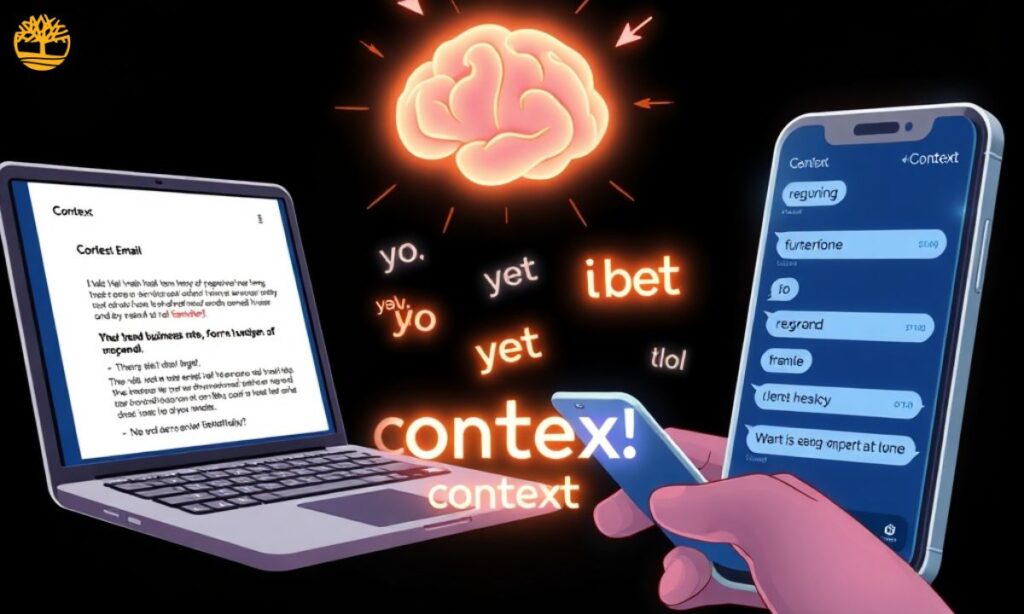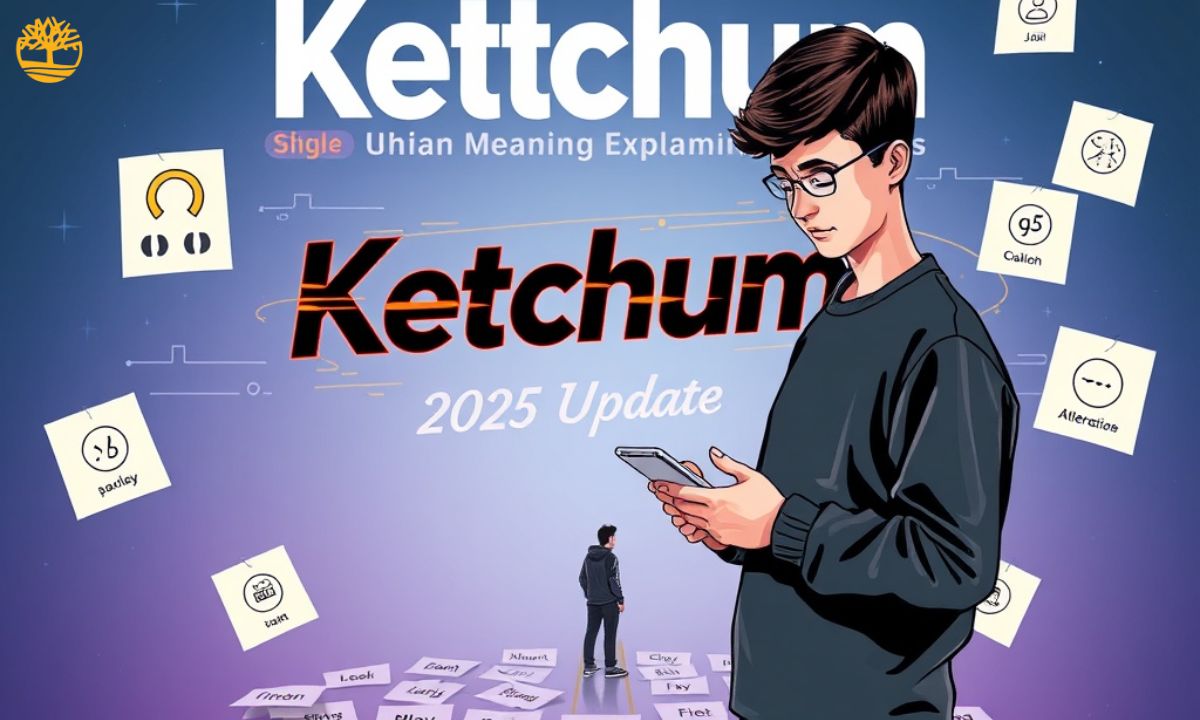Ever come across the word “Ketchum” and felt instantly curious? In 2025, this term has been popping up more often in conversations, posts, and even cultural discussions. It carries a unique vibe that makes people stop and wonder.
Social media trends move quickly, and Ketchum is one of those buzzwords everyone seems to be talking about. Before we dive into what it really means, let’s explore how it connects with ideas like hiatus and powerful alternatives shaping modern language.
What Does “Ketchum” Mean?
The word “Ketchum” sparks curiosity because it carries more than one meaning. It has roots in place names, pop culture, and even modern slang. Each context gives it a different twist.
For some, Ketchum is simply a name. It appears in towns, last names, and even popular characters. But for others, it has taken on symbolic meaning in conversations.
In 2025, Ketchum blends tradition with trend. People use it both seriously and casually, depending on where they first encountered the term.
Etymological and Origin
The name “Ketchum” traces back to English roots, often linked with family surnames and geographic regions. It was historically used to identify people or places.
Over time, the word shifted from a formal name to something more widely recognized. Media and cultural references gave it new layers of meaning.
Today, the origin remains important. It reminds us that even modern slang often begins with traditional names or places.
Pop Culture Recognition
“Ketchum” gained huge visibility through pop culture references. The most famous is Ash Ketchum from the Pokémon franchise.
This character gave Ketchum a new identity. It became connected with energy, adventure, and determination in youth culture.
Because of this, Ketchum is now shorthand for drive, passion, or a never-give-up mindset. Pop culture turned it from a name into a symbol.
Modern and Slang Usage of “Ketchum”

In slang, Ketchum means more than a name. It describes someone’s energy, persistence, or intensity.
You might hear “That’s Ketchum energy” to describe someone who’s hyper-focused or going all in. It’s playful but also admiring.
This slang use shows how old names evolve. They gain fresh meaning when culture gives them new life.
Ketchum as a Verb (Informal)
In informal talk, Ketchum acts like a verb. People might say it when someone is pushing hard toward a goal.
Examples include:
- “I’m gonna Ketchum this project.”
- “She’s Ketchum-ing her way to success.”
- “We just have to Ketchum through finals.”
It’s not official English, but slang often bends grammar. Using Ketchum as a verb adds humor and motivation.
Ketchum as an Adjective (Slang)
As slang, Ketchum works as an adjective. It describes a person’s drive, focus, or unstoppable attitude.
People might say “That’s so Ketchum” when someone is determined or persistent. It signals strong willpower with a playful twist.
In this sense, Ketchum equals intensity. It’s a way to label ambition with style and cultural flavor.
What Does “Hiatus” Mean?
The word “hiatus” simply means a pause or break. It’s used when someone steps back from work, study, or routine. Often, it suggests a temporary stop rather than a permanent end. Many people use it to explain taking time off without fully quitting.
Simple Definition
At its core, “hiatus” refers to a gap in activity. It can describe a short break in daily life or a longer pause in professional projects. The word feels formal yet flexible.
People say they are “on hiatus” when they want to pause commitments. It gives them space to recharge, reflect, or reorganize their priorities. The term avoids sounding final.
In creative fields like music, writing, or TV, hiatus is common. Artists or shows take breaks but often return stronger, making the word sound hopeful.
Usage in Sentences
Using “hiatus” in sentences makes communication clear and professional. It explains a pause without adding unnecessary drama.
Examples include:
- “The band is on hiatus until next summer.”
- “She took a hiatus from social media to focus on health.”
- “Our podcast is on hiatus, but we’ll be back soon.”
In daily life, hiatus works in many contexts. From academics to business or hobbies, it shows a respectful and formal way of saying “taking a break.”
Connotation of “Hiatus”
The connotation of hiatus is usually neutral or positive. It suggests rest, renewal, and preparation for what’s next.
Sometimes, people use it as a gentle excuse for stepping away. Instead of saying “I quit,” hiatus makes it clear the break isn’t forever.
In modern culture, hiatus often carries hope. It frames pauses as healthy and productive, not failures or endings.
Alternative Phrases for “Hiatus”

Sometimes saying “hiatus” feels too formal or heavy. In daily conversations, people prefer lighter alternatives. These phrases can match different tones, settings, and levels of formality while keeping the idea of a temporary break clear.
Taking a Breather
- Context: Casual, personal tone.
- Meaning: A short pause to rest or regroup.
- Example: “I’m taking a breather from work to clear my head.”
Pressing Pause
- Context: Informal, everyday use.
- Meaning: Stopping an activity for now but planning to return.
- Example: “We’re pressing pause on the project until next month.”
On Hold
- Use: In formal and official situations.
- Meaning: Temporarily suspended or delayed.
- Example: “The contract is on hold pending approval.”
On Sabbatical
- Use: Academic or professional setting.
- Meaning: A longer, structured break, often for study or research.
- Example: “She’s on sabbatical to focus on her writing.”
Taking Time Off
- Context: Common workplace or personal life.
- Meaning: Stepping away for rest, family, or personal reasons.
- Example: “I’m taking time off next week for a trip.”
Stepping Back
- Context: Semi-formal, personal or professional.
- Meaning: Reducing involvement without fully quitting.
- Example: “He’s stepping back from leadership duties for a while.”
Pausing for Reflection
- Context: Thoughtful or introspective tone.
- Meaning: Taking a break to think, evaluate, or reset goals.
- Example: “I’m pausing for reflection before my next move.”
Scaling Down
- Context: Business or organizational use.
- Meaning: Reducing workload, projects, or commitments.
- Example: “The company is scaling down operations this quarter.”
Alternative Phrases for “Ketchum-Like Energy”
The phrase “Ketchum-like energy” captures intensity, drive, and ambition. But there are many alternatives that fit formal, casual, or motivational contexts. These words describe people who go all-in with passion.
All In
- Context: Casual or motivational.
- Meaning: Fully committed, with no holding back.
- Example: “She went all in to achieve her dream.”
Hyper-Focused
- Use: Personal or work settings.
- Meaning: Concentrating intensely on one task.
- Example: “He’s hyper-focused on finishing the report.”
Giving It My All
- Context: Personal, motivational tone.
- Meaning: Putting maximum effort into something.
- Example: “I’m giving it my all in this competition.”
Driven
- Use: In formal and official situations.
- Meaning: Motivated, goal-oriented, and determined.
- Example: “Despite challenges, she is a driven professional.”
Tenacious
- Context: Formal or descriptive.
- Meaning: Not giving up easily, holding on strongly.
- Example: “His tenacious spirit kept the team motivated.”
Persistent
- Context: Both formal and casual.
- Meaning: Continuing despite difficulties or setbacks.
- Example: “She remained persistent until the project was done.”
Go-Getter
- Context: Casual, encouraging tone.
- Meaning: Someone proactive who makes things happen.
- Example: “He’s a real go-getter in the office.”
Ambitious
- Use: Formal and semi-formal.
- Meaning: Having big goals and the desire to achieve them.
- Example: “She is ambitious and works hard to reach success.”
Zealous
- Context: Formal, sometimes religious or cultural.
- Meaning: Passionate and energetic in pursuit of something.
- Example: “They were zealous in supporting their cause.”
Eager Beaver
- Context: Informal, light-hearted.
- Meaning: Someone very eager and hardworking.
- Example: “He’s the eager beaver who always volunteers first.”
Hardcore
- Context: Casual, strong tone.
- Meaning: Extremely dedicated or intense.
- Example: “She’s hardcore about her fitness routine.”
Overachiever
- Context: Neutral, can be formal.
- Meaning: Someone who goes beyond expectations.
- Example: “He’s an overachiever who never settles for average.”
Workaholic
- Context: Casual or critical tone.
- Meaning: Someone who works excessively, sometimes too much.
- Example: “She’s a workaholic, always in the office late.”
How Tone and Context Affect Word Choice

The way we choose words depends on tone and context. Formal spaces need precise and respectful language. Casual talks are lighter, while creative or passionate settings allow expressive phrases. Knowing when to switch tones makes your message clear and impactful.
Formal Settings
In formal contexts, word choice is expected to be professional and respectful. People often use structured language that avoids slang or shortcuts. This ensures clarity and maintains credibility in workplaces, academia, or official events. Professional tone builds trust.
Choosing words like “on hold,” “sabbatical,” or “driven” sounds polished. Such phrases fit well in presentations, reports, or emails. They show seriousness and responsibility, leaving no room for misunderstanding. Word precision matters in formality.
Example: “The project is currently on hold pending executive approval.”
Casual Conversations
In casual conversations, language becomes relaxed and friendly. People often use slang, idioms, or playful phrases. The goal is connection rather than structure, so clarity is balanced with a personal touch.
Phrases like “taking a breather” or “all in” work well here. They add warmth and show openness. Such expressions make conversations easy to follow and help people feel comfortable and engaged.
Example: “I’m just taking a breather from studying before the next exam.”
Creative and Passionate Contexts
When emotions are high, words tend to be vivid and expressive. Creative writers, artists, or passionate speakers often choose bold or colorful terms. These amplify energy and bring intensity to the message.
Phrases like “hyper-focused,” “hardcore,” or “zealous” capture this mood. They highlight drive, ambition, and emotion. Such words leave a strong impression and often inspire others. Passion thrives on powerful word choice.
Example: “She was hyper-focused, pouring every ounce of energy into her artwork.”
Cultural Shift in Using Expressive Language
Language today is shifting in ways we’ve never seen before. Expressive words are no longer reserved for art or literature; they’re becoming part of everyday speech. This shows how people want to connect on a deeper emotional level.
Social media, memes, and digital culture have fueled this change. Phrases once seen as casual now slip into formal or professional spaces. This blending of tones highlights a cultural shift toward authenticity and self-expression.
Example: “Instead of saying ‘I’m busy,’ people now say, ‘I’m all in on this project,’ which feels stronger and more personal.”
Conclusion
The idea of “Ketchum” has grown beyond its roots, now symbolizing both energy and pause depending on context. Paired with the concept of “hiatus,” it reflects how language evolves with cultural needs. People use these words to capture emotions that plain terms can’t fully express.
By exploring alternatives like “taking a breather,” “pressing pause,” or “all in,” we see how tone shapes understanding. Whether in formal, casual, or creative settings, these phrases bring clarity and authenticity. In 2025, expressive language continues to reshape how we connect and communicate.

Muhammad Shoaib is a seasoned content creator with 10 years of experience specializing in Meaning and Caption blogs. He is the driving force behind ExactWordMeaning.com, where he shares insightful, clear, and engaging explanations of words, phrases, and captions.











